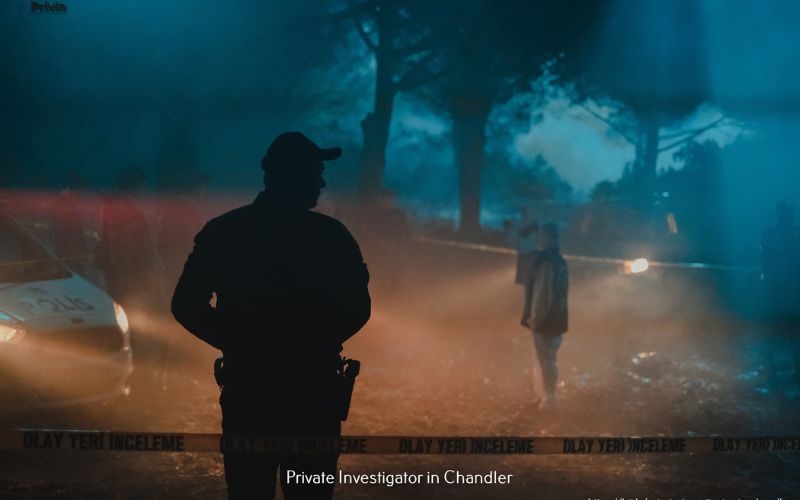
Professionalism: Private investigators should conduct themselves in a professional manner at all times. This includes maintaining appropriate attire, communicating effectively, and treating all parties involved with respect and professionalism.
Adhering to legal regulations and ethical guidelines is essential for private investigators to maintain their credibility, protect the rights of individuals, and ensure the integrity of their investigations. Operating within the boundaries of the law and upholding ethical standards are fundamental aspects of the private investigator profession.
Private investigators often encounter challenging or potentially dangerous situations during their investigations. They may come across individuals who are uncooperative, hostile, or even violent. In cases involving criminal activities or high-stakes investigations, private investigators may face threats to their personal safety. Dealing with difficult or dangerous situations requires a combination of situational awareness, effective communication skills, and the ability to make quick decisions to ensure personal safety and the successful completion of the investigation.
Private investigators must prioritize their personal safety and security throughout their work. This involves assessing potential risks before undertaking an investigation, understanding the environments they will be operating in, and taking necessary precautions. Private investigators may need to employ self-defense techniques, use personal protective equipment, or work in teams to enhance their safety. They must also stay updated on current safety protocols and remain vigilant at all times to mitigate risks.
Private investigators operate within a legal framework and must carefully navigate legal and liability risks. They need to be knowledgeable about the laws and regulations governing their profession and ensure compliance in their investigative practices. Misconduct or negligence can lead to legal consequences, damage to their reputation, and potential civil liabilities. Private investigators must maintain accurate records, follow proper procedures, and consult with legal professionals to manage legal and liability risks effectively.
Private investigators often deal with sensitive or emotional cases that involve personal matters, such as infidelity investigations, child custody disputes, or missing person cases. These cases may involve individuals who are going through difficult and emotional experiences. Private investigators must approach such cases with empathy, sensitivity, and professionalism. They should be prepared to handle intense emotions, provide support to their clients, and maintain confidentiality to protect the privacy and well-being of those involved.
Location: New Mexico is located in the southwestern part of the United States, bordered by Texas to the east, Arizona to the west, Colorado to the north, and Mexico to the south.
Capital and Largest City: The capital of New Mexico is Santa Fe, which is known for its rich history, vibrant arts scene, and distinctive adobe architecture. The largest city in the state is Albuquerque, which offers a mix of modern amenities and cultural attractions.
Landscapes: New Mexico is renowned for its diverse and breathtaking landscapes. It is home to the Sangre de Cristo Mountains, the Rio Grande, desert landscapes like the White Sands National Park, and picturesque natural attractions such as Carlsbad Caverns National Park.
Climate: New Mexico experiences a semi-arid climate, with hot summers and relatively mild winters. It is known for its abundant sunshine, making it an ideal destination for outdoor activities and stargazing.
Cultural Heritage: New Mexico has a rich cultural heritage influenced by Native American, Hispanic, and Western traditions. The state is known for its vibrant art scene, Native American pueblos, traditional adobe architecture, and annual events like the Albuquerque International Balloon Fiesta.
Cuisine: New Mexican cuisine is famous for its flavorful and spicy dishes. Green and red chili peppers are staples in many traditional dishes such as enchiladas, chile rellenos, and posole. Don't miss the chance to try the local cuisine during your visit!
Outdoor Activities: New Mexico offers numerous outdoor activities for nature enthusiasts. You can explore hiking and biking trails, go skiing in the winter months, enjoy water sports on the Rio Grande, or go camping and stargazing in the state's designated dark sky parks.
Historical Sites: New Mexico has a rich history, with many historical sites and landmarks. Visit places like the Taos Pueblo, a UNESCO World Heritage site, the historic Old Town Albuquerque, and the historic Route 66, which runs through the state.
Festivals and Events: New Mexico hosts a variety of cultural festivals and events throughout the year. The most famous is the Albuquerque International Balloon Fiesta, where hundreds of hot air balloons take to the skies. The Santa Fe Indian Market and the Roswell UFO Festival are also popular attractions.
Local Hospitality: New Mexicans are known for their warm hospitality and friendly nature. Don't hesitate to strike up conversations with locals, as they can offer valuable insights and recommendations for exploring the state.
Private investigators face various challenges and risks in their line of work. By implementing safety measures, adhering to legal guidelines, and maintaining professionalism, private investigators can navigate these challenges effectively while ensuring their own safety, protecting the interests of their clients, and upholding the integrity of their investigations.
Starting a private investigation agency involves several key steps. These may include:
Business Plan: Developing a comprehensive business plan that outlines your agency's mission, target market, services offered, and financial projections.
Licensing and Permits: Researching and obtaining the necessary licenses and permits required to operate a private investigation agency in your jurisdiction.
Infrastructure and Resources: Establishing a physical office space, acquiring necessary equipment and technology, and setting up systems for case management, data storage, and client communication.
Insurance Coverage: Obtaining appropriate insurance coverage to protect your agency, employees, and clients from potential liabilities.
Hiring and Training: Recruiting qualified investigators and providing them with thorough training to ensure they have the necessary skills and knowledge to conduct investigations effectively.
Effective marketing strategies are crucial for private investigation agencies to attract clients and build a reputable brand. Some key marketing approaches may include:
Online Presence: Establishing a professional website that showcases your agency's services, expertise, and contact information. Utilizing search engine optimization (SEO) techniques to improve online visibility.

Social Media Marketing: Leveraging social media platforms to engage with potential clients, share informative content, and build a strong online presence.
Networking: Attending industry conferences, joining professional associations, and actively participating in networking events to establish connections with legal professionals, businesses, and potential clients.
Referrals and Testimonials: Encouraging satisfied clients to provide testimonials and referrals, as positive word-of-mouth can be a powerful marketing tool in the private investigation industry.
Private investigation agencies need to carefully consider their financial aspects to ensure profitability and sustainability. Factors to consider include:
Cost Structure: Identifying and managing the various costs associated with running the agency, such as employee salaries, equipment maintenance, office rent, licensing fees, insurance premiums, and marketing expenses.
Pricing Strategy: Determining competitive pricing that considers the market demand, the complexity of cases, the required resources, and the expertise of the investigators. Balancing profitability with providing value to clients is essential.

When hiring a private investigator, look for qualifications such as proper licensing, relevant experience, a solid reputation, and good communication skills. Specialized training or certifications in specific investigative areas can also be beneficial.
Yes, many private investigators have the ability to work internationally or collaborate with investigators in other countries. They can leverage their network and resources to conduct investigations across borders, subject to legal requirements and restrictions.
Private investigators can provide testimony in court based on their findings and the evidence they have gathered. Their expertise and investigative reports can support legal arguments and help establish facts in a case.